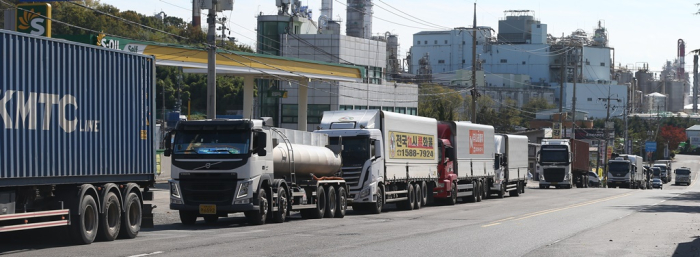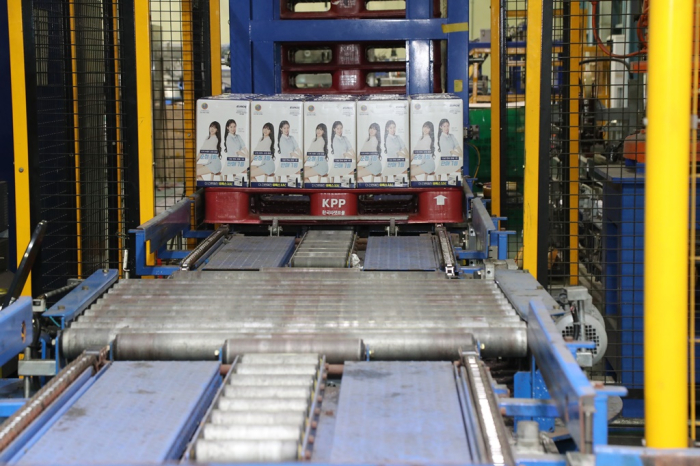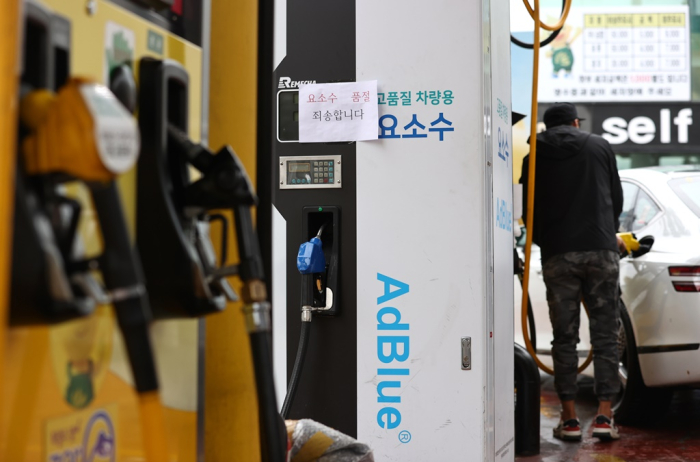Energy
Korea DEF crisis may ease as China will export urea
DEF supply could shrink again as it is uncertain if Korea can import more urea
By Nov 10, 2021 (Gmt+09:00)
3
Min read
Most Read
LG Chem to sell water filter business to Glenwood PE for $692 million


Kyobo Life poised to buy Japan’s SBI Group-owned savings bank


KT&G eyes overseas M&A after rejecting activist fund's offer


StockX in merger talks with Naver’s online reseller Kream


Mirae Asset to be named Korea Post’s core real estate fund operator



The DEF supply crisis, however, is expected to occur again long term since the transportation sector's total import volume of urea will last only for one and a half months and it remains unclear if South Korean companies are able to buy more, analysts said.
South Korea’s foreign ministry said on Nov. 10 that it confirmed through various diplomatic channels with the Chinese government that the authorities plan to proceed with customs clearance procedures for 18,700 tons of urea that South Korean companies have signed contracts to import.
“Domestic companies have applied for export inspections on 7,100 tons only, while others have not requested inspections for the rest,” said a foreign ministry official. “We are encouraging local companies to apply for the inspections as soon as possible.”
China has been blocking urea’s overseas shipments since Oct. 15 by mandating export inspections, causing the supply shortage of DEF in South Korea. The disruption has bitten into not only the local logistics sector but also other industries such as the construction sector.

ENOUGH FOR 47 DAYS
Among the total urea that will be cleared for import, the amount earmarked for vehicle DEF was 10,300 tons -- enough for the liquid to be consumed in about 47 days -- considering South Korea imported 80,000 tons to produce DEF for automobiles last year.
It has yet to be determined exactly when China will ship the urea to South Korea. But 2,700 tons of urea a South Korean company bought for industrial use was loaded and shipped from the Qingdao Port earlier in the day, while 300 tons another firm purchased for vehicles is scheduled to leave the mainland on Nov. 18. South Korea imported 290,000 tons of urea for industrial purposes last year.
In addition to China, another private company was set to import 5,000 tons of urea from Vietnam next week, according to the government. It has yet to be confirmed if the Vietnamese urea can be used for automobile DEF. The government plans to use the raw material for the industrial sector if it is not suitable for vehicles.
The government asked Samsung C&T Corp., the trading arm of Samsung Group, to help secure DEF through its global networks, according to industry sources, as the country has stepped up efforts to address the crisis.
The private sector held 15.6 million liters of automobile DEF, which will be exhausted in less than a month, along with 7.5 million liters of industrial DEF, according to the government.

TO SUFFER FERTILIZER SHORTAGE
DEF supply is expected to stabilize in the near term on China’s decision to allow exports of contracted urea. But South Korea is expected to suffer a more serious shortage from January of next year if the country cannot procure more urea from China after importing all of the contracted volumes, analysts said. China supplied 97% of South Korea’s urea needs for general vehicle use in the first nine months of the year, according to the Korea International Trade Association.
If China bans further exports of urea, South Korea’s agricultural sector is likely to face difficulty in fertilizer supply. The country is expected to pile up urea for the agricultural sector to 95,000 tons by February 2022. The inventory is only enough for 20.1% of annual demand.
South Korea needs to obtain urea supply sources other than China and prepare a system to locally procure core raw materials before next year, experts said.
“Japan produces 77% of its total domestic urea demand based on government support,” said Kang Chun-gu, professor of energy resource engineering at Inha University. “Korea should also diversify sources of core raw materials and nurture its own producers to secure the resource.”
Write to Eui-Jin Jeong, Hye-Joung Moon and Jin-gyu Kang at justin@hankyung.com
Jongwoo Cheon edited this article.
More to Read
Comment 0
LOG IN



